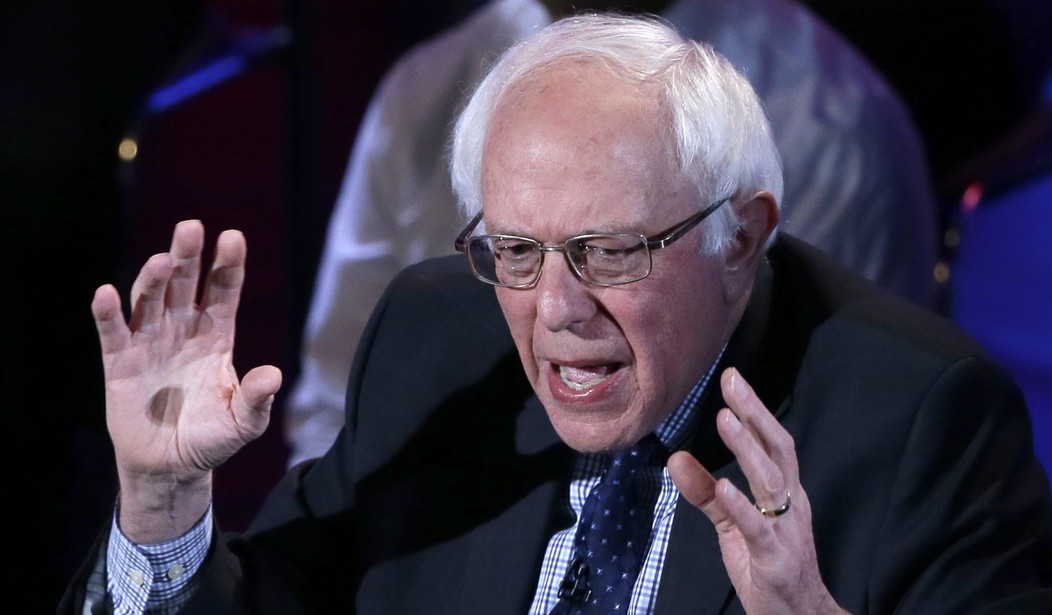In a special press conference on Sunday, Independent Senator Bernie Sanders pledged to contest the Democratic National Convention in Philadelphia, PA, in late July. Sanders is refusing frontrunner Hillary Clinton the chance to pivot to a likely general election fight against Republican frontrunner Donald Trump, claiming that the people and “democracy” are on his side. In doing so, he channels Ted Cruz in pushing a contested convention, but his arguments mimic Trump more than the Texas senator.
The Vermont senator likely faces a losing battle for the same reasons that Trump is struggling to lock down the Republican nomination for president. Political parties are not pure democratic institutions — they represent the members of the party more than the wishes of the general electorate. While it seems unfair, it is perfectly legitimate for the decision-makers in a party to reject someone with more votes in favor of someone with less votes, so long as that underdog represents the party’s values better. Fortunately for Clinton, she doesn’t face that situation.
Nevertheless, Sanders vowed, “The convention will be a contested contest,” at the Sunday press conference in Washington, D.C. The Vermont senator insisted that if neither he nor Hillary Clinton reaches the convention with a majority of delegates it will be contested. He further discounted the validity of superdelegates, saying that they should follow the wishes of voters in their states.
In both the Democratic and Republican Parties, some delegates are not “bound” to support the winners of primaries in their states. In the Democratic Party, 718 of 4,764 delegates are party officials, known as superdelegates, and they are utterly free agents. Many have openly backed Clinton, but they are not obligated to do so at the convention in Philadelphia.
Clinton “will need superdelegates to take her over the top at the convention in Philadelphia. In other words, it will be a contested convention,” Sanders declared.
The Democratic frontrunner currently has 1,645 delegates and 520 superdelegates, while the Vermont senator has 1,318 delegates and 39 superdelegates. Either candidate needs 2,383 delegates to with the Democratic nomination. If Sanders discounts all superdelegates, as he did in the speech, he is invalidating 15 percent of the available delegates. These free agents wouldn’t make much of a difference if the race were not already very close.
The Vermont senator is still far behind, even discounting superdelegates, but he is vowing to fight to the bitter end.
“For us to win the majority of pledged delegates, we need to win 710 of the remaining 1083,” Sanders admitted. “That is 65 percent. That is, admittedly, a tough road to climb, but not an impossible one. And we intend to fight for every vote and delegate remaining.”
Sanders sees the Democratic primary race as rigged in much the same way as Donald Trump sees the Republican race as unrepresentative of the people’s will. Both candidates are right, to a small extent, but they overstate their case.
Next Page: Why Sanders and Trump deserve to face backlash in their parties.
Sanders claims that the Democratic Party system shifts support from where the voters placed it, and he is mostly correct on that score. “In the state of Washington, we won that caucus with almost 73 percent of the vote there — 73 percent of the vote. In anybody’s opinion, that is a massive landslide. But at this point Secretary Clinton has 10 superdelegates from the state of Washington, we have zero,” the Vermont senator declared.
“I would ask the superdelegates from the state of Washington to respect the wishes of the people in their state and the votes they have cast.” This is a particularly fine request, but the superdelegates are not doing anything illegitimate by not adhering to the wishes of voters. The Democratic Party has free agents precisely because someone outside their party mainstream — an Independent who literally does not represent them — might take advantage of voters in primaries. The Republican Party has free agents for exactly the same reason.
Donald Trump claims that he is being denied the nomination unfairly, but there are numerous holes in this argument. First, he has already been winning more delegates than his percentage of the vote would suggest. According to an NBC News analysis — done before the New York and other Northeastern primaries — Trump had 45 percent of all delegates, but only 37 percent of all votes in the Republican primary. The Donald won big in New York and in the primary last week, but even then he won more delegates than his popular vote margins would suggest. 60 percent is a big deal, but he won 100 percent of the delegates! Does The Donald consider this fair?
More importantly, Trump argues that it is unfair for human beings to make up their minds against the will of primary voters. He claims that he has won millions of more votes than Texas Senator Ted Cruz, and this is true. However, a political party doesn’t just represent voters in the primary, especially primaries which are open to members of other parties. Many are particularly suspect, given the evidence that 60,000 Democrats (6 percent of the electorate) may have voted in the Republican primary in Virginia, a state Trump won by only 2.8 percent.
Donald Trump and Bernie Sanders both only recently switched their party registration to compete in presidential primaries. Both have previously supported policies that are at odds with their current party’s platform, and both rely heavily on the support of independents in primary votes. This suggests that Republican and Democratic free agents might be right to distrust them.
Trump has the worst popularity of any candidate in the race, followed closely by Clinton. This explains both why The Donald is the weakest party frontrunner in recent times, and why Sanders has been able to raise a huge threat to the former Secretary of State. But the runner-ups in both parties have their own problems. Ted Cruz may be too conservative to stop Trump, and Bernie Sanders may be too liberal to stop Clinton.
Nevertheless, it is perfectly legitimate for the two parties to reject a candidate unlikely to represent their platform, and to empower free agents at the conventions to do so. That’s what makes this cycle so interesting.
Many have speculated that Bernie Sanders — unlike Donald Trump — will not likely mount a third party race if he is denied the Democratic nomination for president. This move suggests he has more fire in the belly than previously thought. Will independents “Feel the Bern” even if Clinton is the Democratic nominee? It’s 2016, and as The Donald has taught us, anything can happen.









Join the conversation as a VIP Member